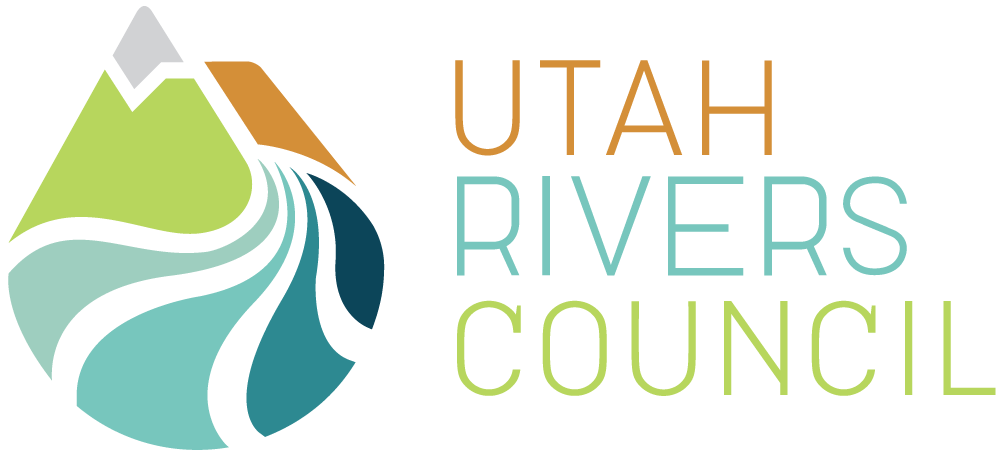The Colorado River’s flow has declined nearly 20% this century under the pressure of a changing climate. Three of the four Upper Basin states are already overusing their rights to the river, and that deficit is sure to grow significantly unless water suppliers get serious about reducing water use.
After a year of careful research, we published a report on the repercussions of this overuse, the dire predictions for the future, and what it means for the Basin’s residents. A Future on Borrowed Time, is a call to action to stop building new water diversions on America’s hardest-working river.
The Utah Division of Water Resources is proposing one of the largest new diversions of the Colorado River that will sink Utahns in debt, require gigantic increases in water rates and property taxes in Southwest Utah, dry up downstream states and reduce flows of this iconic, hard-working river.
The Lake Powell Pipeline is a massive proposed diversion of the Colorado River to provide municipal water to Washington County in southwest Utah. These municipal water users are among the most wasteful water users in America, using more than twice the national average of water, per-person.
This $2.4 billion project would pump 28 billion gallons of water 2,000 feet uphill across 140 miles of desert to provide just 160,000 residents in Southwest Utah with more water—primarily for watering their lawns.
The Problem. This huge project would divert Colorado River water immediately upstream of the Grand Canyon, further diminishing flows for a river that no longer reaches the ocean.
The Lake Powell Pipeline is completely unnecessary because an array of less-expensive water sources exist to provide residents with water, who already have an abundance of water. Lake Powell Pipeline proponents have downplayed and ignored these alternatives to make the case for spending billions in taxpayer funds that will benefit their agencies.
The $2.4 billion would be spent on a complicated array of 140 miles of pipelines, pumping stations, reservoirs and generators crossing state, federal and tribal lands. Paying for the expensive Lake Powell Pipeline will require huge water rate, impact fee and property tax increases in Washington County. The project is so complex that over the last 10 years the state has spent $36+ million on paperwork and planning, with many expecting this permitting cost to double in coming years.
Current Status. The fight over the Lake Powell Pipeline has turned on its head and project proponents are scrambling to save face. During the Lake Powell Pipeline’s latest environmental review that ended on September 8th, over 14,000 public comments were submitted. In a historic first, six Colorado River Basin States united to oppose the project and threatened legal action against the state of Utah. This powerful statement by six Basin States demonstrates just how out of touch Lake Powell Pipeline Proponents are from the current reality in the drought stricken Colorado River Basin.
These State officials and water leaders were joined by over a hundred small businesses who submitted comments as a coalition opposing the Lake Powell Pipeline, asserting that the project would threaten the livelihood of their communities and businesses. This sweeping opposition resulted in media attention and headlines across the American West.
The URC was the tip in the spear, submitting over 200 pages of detailed comments with our partners that highlighted the many flaws of the Pipeline and its environmental review. Dozens of organizations across the Colorado River Basin signed on to our comments, creating a broad and diverse coalition.
In April of 2020 , Utah water cartel members announced that the Kane County Water District is backing out of the proposed $3 billion Lake Powell Pipeline. Yes, you read correctly.
For the last 14 years, the Kane County Water District, claimed – in fact its Executive Director yelled such claims at several legislative committees – that Kane County needed water from the proposed Lake Powell Pipeline. The Kane County Water District is a small water supplier that delivers water to a very small percentage of Kane County’s population. Led by former Utah legislator Mike Noel, the water agency was widely criticized for failing to prove its claims for needing the water or coming up with a viable plan to pay for the water.
Despite formally withdrawing from the project, Kane County is still actively working to advance their Lake Powell Pipeline water right and testified for this water right in October of 2020. Additionally, Mike Noel is still a voting member of the Lake Powell Pipeline Management Committee and very much a part of the planning process for the project. The official documents for the Lake Powell Pipeline still include a connection point where Kane County can tap into the Lake Powell Pipeline water at a “future date”.
It appears that Kane County’s “withdrawal” from the Lake Powell Pipeline was a farce and nothing more than a poorly veiled effort to avoid federal oversight during the Lake Powell Pipelines environmental review.
In the face of such historic criticism, proponents of the Lake Powell Pipeline have asked for a two year delay in a desperate attempt to resurrect their sacred cow project. This is a major victory for the URC, who with your help has been leading the fight against the Lake Powell Pipeline for over ten years, but the battle is not over.
Pipeline salesmen are still working to advance the project. Even after requesting the two year delay, LPP proponents testified in the fall of 2020 in favor of advancing the water rights, which have yet to be approved. The Utah Rivers Council testified vehemently against the application, as it still awaits the decision of the State Engineer. Utah’s water cartel is on their backfoot, doing anything possible in their power to get the Lake Powell Pipeline approved. Learn more about how you can help stop the largest new diversion of the Colorado River threatening to sink Utahns in debt and dry up downstream states.



